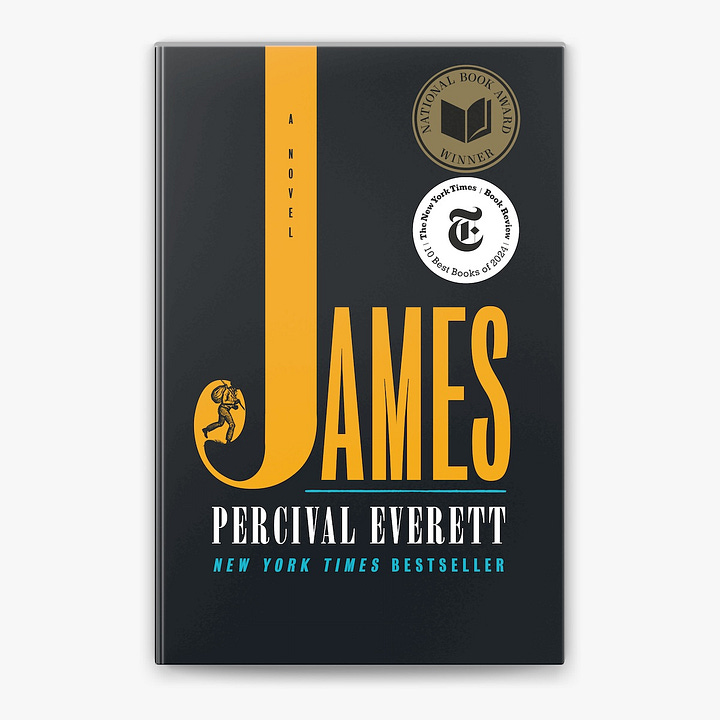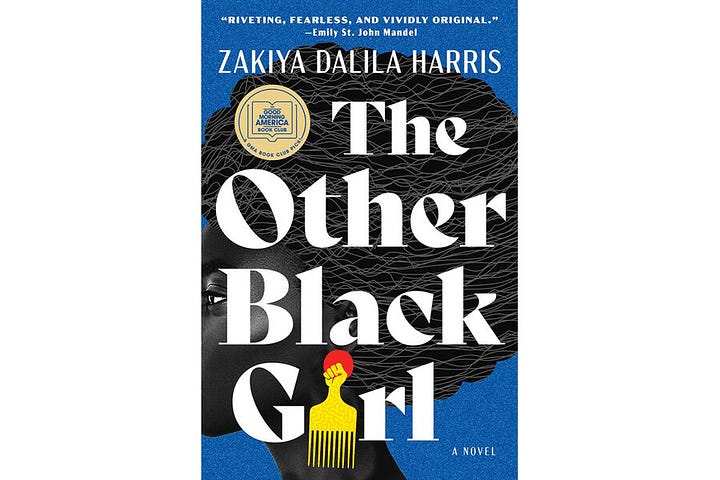Originally published over a year ago, this post is a natural extension of my last post, Raising ADHD: Why Common Parenting Strategies Don’t Work and What to Do Instead.1 Gentle parenting has been a primary culprit in parents of ADHDers feeling like “this just doesn’t work.” But I have found this experience with gentle parenting to be true across parents (including myself), regardless of neurodivergence. So, I made a few updates and am sharing again! (And if you read it last February and still remember it, you’re amazing!)
HuffPost recently reached out to me for comment on an article about gentle parenting. The article starts with the definition of gentle parenting, one with which no self-respecting child psychologist would disagree: gentle parents treat their child “as an individual with their own point of view” while centering “guidance, teaching, and modeling” rather than shame and punishment. This aligns exactly with my personal parenting philosophy and the autonomy-supportive model.
Then the “real-life” examples shared by the array of experts quoted in the article lose me. Reading these examples helped me clarify one of my chief complaints about the approach: gentle parenting prescribes an ideal first response to a child’s behavior, but leaves us hanging for how to respond when the child does not actually change a behavior (like interrupting when you’re on the phone).
This reminds me of when I attempted one of the gentle parenting tricks with my then 4-year-old son. Instead of loudly directing “put on your shoes,” I whispered the command. He punched my leg and ran off. I did not keep whispering.
The Instagram success of parenting memes promoting gentle parenting principles depresses me. Low on nuance and high on shame induction, these pithy posts can get thousands of likes and shares. The popularity concerns me because it seems to convey that we are embracing impossible standards for parents, en masse. Without good reason.
But there may be hints of a pendulum swing away from the meteoric popularity of gentle parenting. The parenting website, What to Expect, listed 2024 parenting trends, including: “Parents are revolting against the once-popular gentle parenting style.” The 2022 New Yorker article, The Harsh Realm of Gentle Parenting, had me highlighting every other sentence. So, it’s not just me pushing against this phenom in parenting approaches.
Yet, I still regularly talk to parents aspiring to be “gentle parents” and feeling like complete failures. If that sounds familiar, this is for you.2
First, The Good Stuff
Before I dive into the no’s of gentle parenting, let’s start with the good stuff. Gentle parenting promotes key ingredients of authoritative parenting. Defined generally as a blend of parental warmth and firm limits, authoritative parenting has long been considered in psychological research as associated with the healthiest kids.
The overlapping elements of gentle and authoritative parenting are: 1. Establish a warm and connected relationship between parent and child; and 2. Use empathy to understand the child’s emotional experience. Empathy and perspective-taking are two of the main ingredients of autonomy-supportive parenting too. It’s good to understand our child’s emotions and how those emotions affect behaviors. That ultimately helps us address behaviors via their emotional underpinnings. Always the aspiration!
I want to be clear: if you practice gentle parenting and it feels like a great fit for you and your children, I fully support it. There are healthy and helpful elements to the approach. I worry, though, about the parents and kids for whom it is not a great fit, and how experiencing this leads to feelings of self-blame and failure instead of recognizing that this approach is simply not the right recipe for their family.

Emily’s No’s of Gentle Parenting
So why do I bristle at gentle parenting guidance? As I have reflected on the why of my opposition to gentle parenting as an approach that sounds so great in theory, I came up with more concrete reasons than “it annoys me.” If you’ve struggled with embracing gentle parenting, hopefully this list validates why.
1. You’re Not Doing it Wrong if You’re Not a Gentle Parent
Gentle parenting advocates directly contrast it with authoritarian styles. Think of authoritarian like a dictator regime – it’s old-school and not great for kids because there’s no regard for the child’s wants and needs. It’s about the parent having full authority with low warmth in the relationship and rigid limits. But you can be a very effective parent who doesn’t ascribe to gentle parenting, and not be authoritarian. It’s not either/or as often presented.
2. Your Child’s Behavior Is Not a Referendum on Your Parenting
In how I see parents interpret gentle parenting, they (mostly mothers) feel intense pressure on each and every interaction. A child’s behavior becomes a reflection of whether the parent has a positive enough relationship with their child. Guess what? Sometimes kids are jerks. Sometimes we are jerks. We all have our moments. Every challenging behavior or meltdown does not need to be a referendum on our parenting or our relationship.
3. Stress None of Us Needs
This pressure adds stress to parenting that we don’t need. Higher stress undoubtedly impacts our relationship with our child in a negative way, more so than having our authentic moments of being human. Yes, I’m arguing that it’s fine to show frustration with a child who has asked us the same question for the 17th time because they didn’t like our answer. It’s better than holding it in, which hurts us and does not demonstrate natural consequences of our child’s behavior on others. Not to mention that this one moment of frustration does not define an entire relationship.
A study from July 2024 backs up my hypothesis, finding that more than one-third of self-identified gentle parents described burnout and expressed uncertainty about themselves as parents. Although limited by a small sample size, the study at least hints at why gentle parenting may not be in the best interest of the parent.
4. Empathy Doesn’t Fix Everything
Another theme I see and hear (and have felt myself) is the guilt, self-blame, and shame when we attempt gentle parenting ways and our child continues to do the “undesirable” behavior. I’m here to tell you that empathy and addressing emotions underlying behaviors often do not eliminate the undesirable. Because kids are kids. They have brains and nervous systems that look like a construction zone—flimsy structures, electric wiring not yet hooked up or hooked up sloppily, and a disarray of tools without a toolbox to organize them. But we may internalize our child’s under-construction limitations as our failure, since we are told that this empathy and focus on the relationship this is the solution. We think that we must be doing it wrong.
5. You Can Have Connection AND Consequences
Punishment and discipline are often confused in gentle parenting material. According to decades of science, behavioral tools are not automatically punishments, and can be a very effective component of discipline. Discipline teaches; punishment does not. You can have connection and consequences. I promise. ICYMI I wrote more about this in Just Say No: Where Gentle Parenting Misses the Mark.
6. Weak Science
Finally, despite claims to the contrary, digging around in academic databases yields little evidence for the effectiveness of gentle parenting. Its very definition is slippery because it’s not yet a concept recognized and studied in psychological science. Generally, however, research and common sense support that different children respond to different parenting strategies. This leads to my last gripe--when proponents of any parenting approach claim it works for everyone. I take this on in great detail (with scientific back-up) in my book.
Real Over Ideal
I’m hoping the word gets out that autonomy-supportive parenting incorporates the best of gentle parenting (e.g., using empathy and perspective-taking, prioritizing the parent-child relationship) but with more flexibility and less shame/guilt/feelings of failure. Gentle parenting may offer an ideal version of parenting, but autonomy-supportive parenting is compatible with the real version.
Last year, another journalist writing about gentle parenting for Good Housekeeping contacted me for comment, and agreed to interview me despite my contrarian stance. In our talk, the journalist shared one example of using several gentle parenting tips to stop her 2-year-old’s undesirable behavior of jumping on a table. With no effect on his gleeful jumping, she finally yelled and took him off the table. She felt guilty for days. The relief she expressed in our conversation was maybe part of finally feeling permission to release a more pervasive guilt of not living up to gentle parenting standards. If you’re in that camp, I hope you can also find that relief and release.
With any parenting guidance, it's okay to take what works for you, your child, and family, and leave what doesn't. Including the guilt, shame, and self-blame. Leave it.
What’s your experience with gentle parenting? Yay, nay, or in between?
In the Media
I had a round of fun podcast conversations over the last few weeks! I guested on Tom Parkes’ Mentally Flexible podcast and shared my journey as a new mother as he prepared for his first baby before we dug into Parenting with Nuance, Flexibility, and Compassion. I then had the pleasure of a conversation with career preschool director, Patty O’Connor, on her Little Feet Community podcast about How to Raise a Confident Child.
In non-parenting related content, I interviewed financial advisor and author, Elizabeth Husserl on Psychologists Off the Clock about her new book, The Power of Enough: Finding Joy in Your Relationship with Money. But since everything comes back to parenting, at the end of the discussion we did touch on how we can help our children cultivate healthy relationships with money.
Finally, I did a virtual talk for a fabulous organization whose mission is to provide free and science-based resources for parents, The Parent Venture. If you have an hour to listen to me talk about parent stress and autonomy-supportive parenting, you can watch here. The Parent Venture founders, Charlene and Bev, are passionate about getting science-based information to as many parents as possible and they are lovely human beings in general. You should definitely check out their other online resources!
(Not to brag, but both Patty and The Parent Venture founders shared that in their 30 years of working with children and in parenting, my little ol’ book was one of the best the'y’ve read!)
How I’ve Been Relaxing
I have been devouring books now that I’ve realized I can enjoy fiction via audio, and a friend who doesn’t keep books has been unloading hers for my hoarder collection!
Here are some faves of 2025 so far:




James, Percival Everett. This National Book Award winner seems to be everywhere and for good reason. This story is NOT FUN despite what some reviews say of this Huckleberry Finn alternate narrative from enslaved Jim’s perspective. It’s harrowing and awful. But it’s oh so well-written, quickly paced, and full of heart and courage. You won’t be able to put it down.
Madwoman, Chelsea Bieker. An overwhelmed mother of two young children alternates between a past she has tried to leave so far behind that it’s a secret along with her real identity, and the present day, as that past rapidly chases her. It’s both a relatable narration of the suffocation of early motherhood along with a raw rendering of childhood abuse and domestic violence. I’m still thinking about the characters.
The Other Black Girl, Zakiya Dalila Harris. I had long been intrigued by this book because of the buzz, including some people who hated the ending. I love a good controversy in fiction, so I was thrilled there was no wait on my library app for the audio version. I was hooked from the beginning. A suspense novel with multiple points of view set in the publishing industry? Yes, please. I still can’t decide what I thought about the ending…
Demon Copperhead, Barbara Kingsolver. No surprise that this 2023 Pulitzer-winning novel that everyone has been raving about would be one of my favorites now that I finally read it. I spent years working in the child protection system, so the detailing of the main character’s coming of age in foster care touched all my heartstrings. But it goes even deeper into a social commentary on the ravaging of rural communities by poverty and addiction that goes ignored. I loved every page and how Kingsolver managed to imbue hope and optimism of the human spirit in the midst of tragedy and suffering.
I hope spring has sprung where you live and you have enjoyed the children having more outdoor time!
In parenting solidarity,
Emily
For those of you interested in the small group coaching geared toward ADHD, read more info here and fill out a pre-enrollment form for a quick chat if you’re interested! Groups start Monday, April 7th.
If it’s not you, but you know someone who fits this description, be a good parent friend and pass it on!




I’m one of those parents who gentle parenting worked well for, but I subscribed recently for your neurodivergence-related advice, so I was curious to read your take here. It seems odd to me that so many gentle parents feel shame when they yell at their kids. Like, they’re on board with being empathetic to their kids’ emotions and not shaming them for what they feel, but they’re shaming themselves for their own emotions and trying to totally suppress feelings like anger instead of working with them? I used to joke with my kids that they wanted a robot mom and got stuck with a real human instead, but I don't think that actually trying to be more robotic would've led to a more satisfying relationship for any of us -- though my ADHDers (my spouse and our 11 year old) thrive on a more low-key, insulated emotional style, and our 15 year old likes bluntness and clarity.
I agree that meme-style scripts for acknowledging our kids' emotions didn’t work as well as acknowledging them other ways did – e.g. when the plane’s fasten seat belt sign turned on and my toddler started freaking out about being buckled in, it was less useful to say calmly “You’re upset about being buckled in” than it was to loop a snake toy around my own arm and shout “Get it off me! Get it off me!” Both examples are about mirroring the kid's feelings, but the second one does more to turn her feelings into something she can regulate and work with herself.
One way gentle parenting worked for us is that I actually did have more ability to direct my little kids’ behavior when we stayed in sync in the moment than when I tried to tell them verbally how to behave. Like if the kid took off down an aisle at Kmart, it worked best if I mirrored her emotion and romped with her like we were having the time of our lives, right there at 9:30 AM in the cleaning supplies, and then she’d reach the end of the aisle and instinctively look to me to see what was next. I used that to steer our activities in a calmer direction. But I'm not sure any of this stuff makes it into the meme version of gentle parenting.